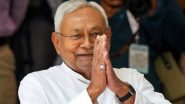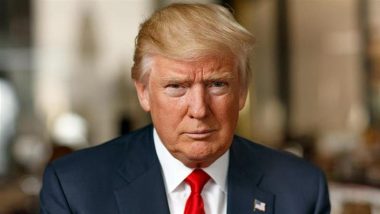Islamabad, July 16: The United States on Tuesday voiced concern over Pakistan government's decision to ban Imran Khan's party Pakistan Tehreek-e-Insaf, ARY News reported. During a press briefing, the US State department spokesperson expressed concern regarding potential restrictions on the Pakistan Tehreek-e-Insaf by the government, the report said.
"We have observed public statements from the government regarding potential restrictions on PTI," US State Department spokesperson Matthew Miller said at a press briefing. "Banning a political party would be of great concern to us. We advocate for respect for democratic principles and people's fundamental rights, which are essential not only in Pakistan but also globally," he added. US stands against political violence, Pakistan-based ARY News cited Miller as saying. Pakistan: Imran Khan's Party Wins Legal Victory as Supreme Court Rules Pakistan Tehreek-e-Insaf Eligible for Reserved Seats.
"We abhor political violence in any country, including Pakistan, and have consistently condemned it. We support the rule of law and democratic processes in Pakistan and worldwide," he said. Miller reiterated US support for constitutional processes and democratic norms. "We support the peaceful upholding of constitutional and democratic principles, including respect for human rights and freedom of expression," he said.
The Pakistani government's decision to ban Pakistan Tehreek-e-Insaf drew flak from political parties all across the spectrum, with several leaders slamming the move and saying it is undemocratic and will have far-fetched implications. Pak Govt's Move to Consider Ban on Imran Khan's Party Draws Flak from All Leaders.
The PTI said in a press conference that the move is the result of "embarrassment" faced by the ruling party after the Supreme Court decision that granted reserved seats to PTI. They vowed that they had fought and would continue to battle the elements "hell-bent on plunging the country into the quagmire of destruction and anarchy" by giving their wish the status of the law.
(This is an unedited and auto-generated story from Syndicated News feed, LatestLY Staff may not have modified or edited the content body)













 Quickly
Quickly




















